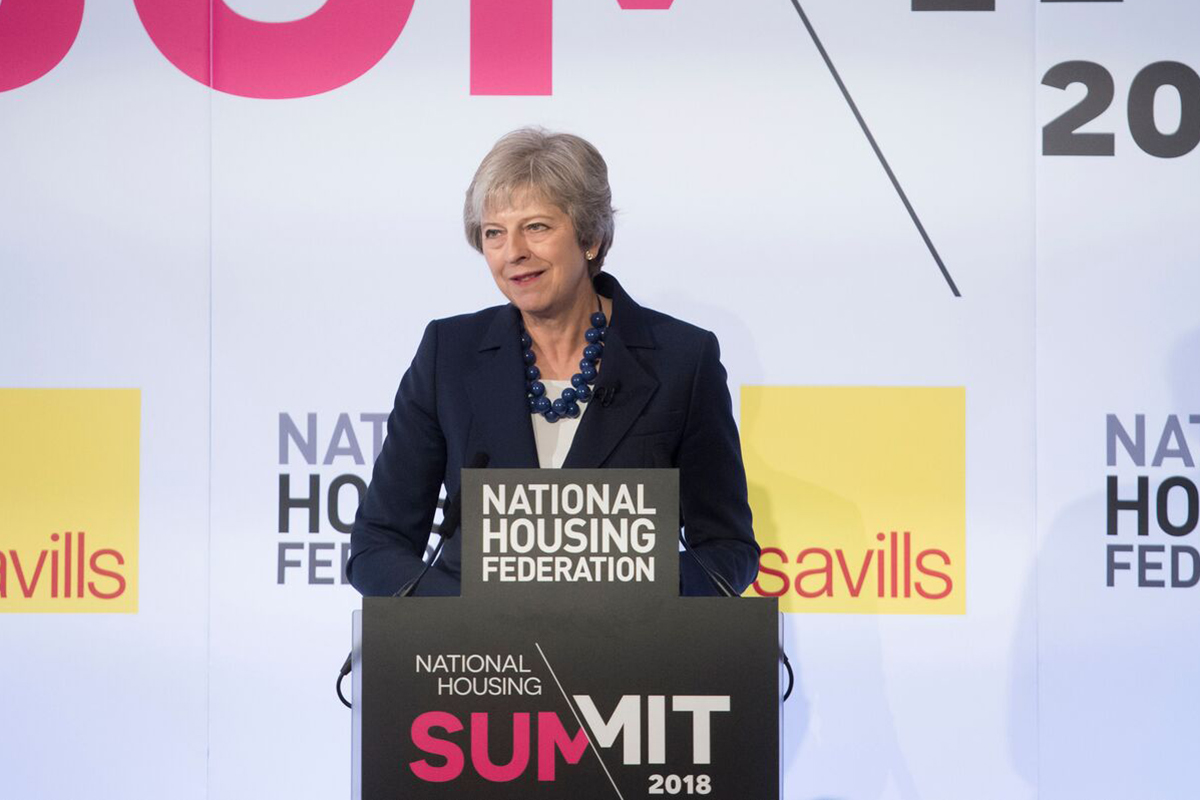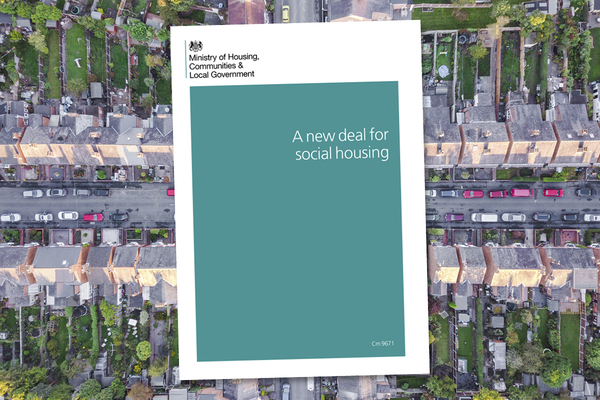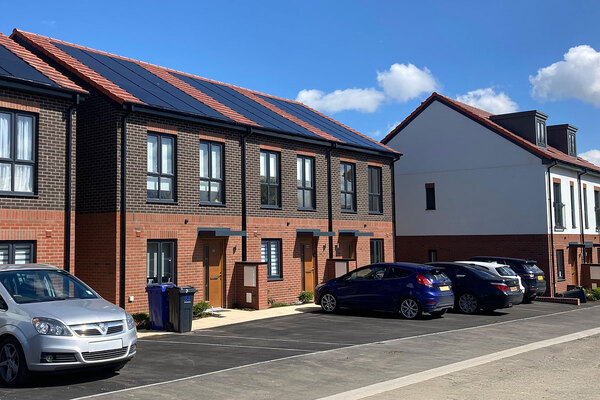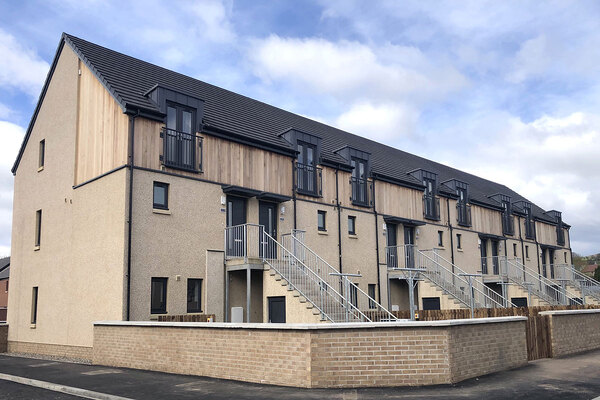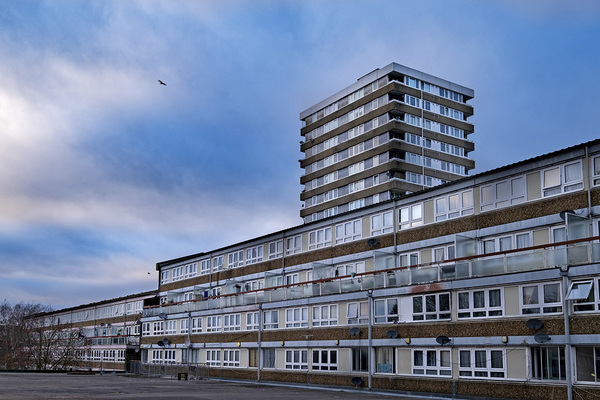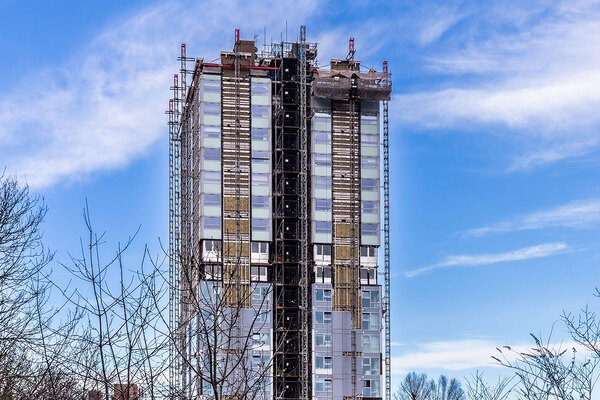You are viewing 1 of your 1 free articles
In full: Theresa May’s speech to the National Housing Summit
Theresa May gave an historic speech to the National Housing Federation’s annual conference this morning. Here we publish the full text of what she said.
Theresa May speaking at the National Housing Summit in London this morning
Below is the full transcript of the prime minister’s speech to the National Housing Federation’s conference in London on 19 September:
“Thank you, Diane, and good morning everyone.
It is a pleasure to be here with you all today at what is an event of firsts and lasts.
I will start with the lasts…
Reference has already been made to the fact this is David Orr’s final annual conference as chief executive of the National Housing Federation.
In his 12 years at the helm David has done much to refocus and reinvigorate the housing association sector, and has been a worthy champion for your cause.
David, it has been a pleasure working with you since I became prime minister, and I am very sorry to see you go.
But I know that, in Kate Henderson, the NHF has found a worthy successor and the right person to take the federation on the next stage of its journey.
And, Kate, I am very much looking forward to getting to know you and working with you to tackle what remains one of the great challenges of our time.
“I have made it my personal mission to fix our broken housing system”
While this may be David’s last NHF conference, I have to admit it is my first.
In fact I was shocked to discover that this is the first time in history any prime minister has spoken at what is the biggest event on the housing association calendar.
To me, that speaks volumes about the way in which social housing has, for too long and under successive governments, been pushed to the edge of the political debate.
At best taken for granted, at worst actively undermined.
Well, I’m very pleased to say that is no longer the case.
Because, since my very first day in Downing Street, I have made it my personal mission to fix our broken housing system.
Doing so underpins so much of what this government is working to achieve, from tackling loneliness to supporting the industries of the future.
And housing associations have a huge role to play in making sure that vision becomes a reality.
We are already making good progress.
Doing all we can to get more of the right homes built in the right places, so we can help more people on to the housing ladder – and ensure that those who cannot afford to own their own home also have a decent place to live.
We have committed tens of billions of pounds to getting homes built, including creating the infrastructure that unlocks sites where they are needed most.
Our new National Planning Policy Framework has removed unnecessary barriers to homebuilding and made it harder for commercial developers to dodge their affordable home obligations.
We are gearing up Homes England to be more proactive and interventionist, so that it can drive more and better development.
The Affordable Homes Programme is supporting the delivery of a quarter of a million affordable homes right across the country, with thousands of them available for social rent.
And the Land Assembly and Small Sites funds, together worth more than £1.9bn, are now available.
“We are gearing up Homes England to be more proactive and interventionist”
They allow us to make positive interventions in the land market, bring more sites to market and capture more of the land value for the benefit of local communities.
Just this morning we have heard the NHF calling for more of the value generated by public investment and the planning system to be captured and invested in affordable homes, public services and local infrastructure.
It is an important issue, which is why the government consulted on it recently.
We will be responding in full in the near future.
But in the meantime let me assure you that we share your commitment to giving communities a fairer share of the value created by development.
Land is an irreplaceable natural resource, and we must make sure its use benefits us all.
As well as boosting housing supply, we are taking action to protect and support homeowners and tenants.
Banning letting agent fees for people who rent their homes.
Clamping down on rogue landlords and unscrupulous managing agents.
And bringing an end to unjustified use of leasehold.
“We share your commitment to giving communities a fairer share of the value created by development”
I am sure many of the people in this room will have responded to our consultation on making longer, more family-friendly tenancies the norm – the results of that will be published shortly.
And our Green Paper on Social Housing, which was of course announced at last year’s NHF conference, offers a landmark opportunity for major reforms to improve fairness, quality and safety for all residents living in social housing.
James Brokenshire, Kit Malthouse, and ministers and officials right across government are pulling out all the stops to make sure everyone in this country has a safe, secure and affordable place to call home.
And already we are seeing the results.
In 2016/17, more than 217,000 additional homes were added across England.
That represents a 15% increase on the previous year.
In fact, with the exception of one year, the last time we saw net completions this high Lady Thatcher was in Downing Street.
Yet we should not lose sight of the fact that the housing crisis we face today did not come about overnight.
It is the result of decades of neglect.
Year after year in which housebuilding of all kinds fell even as demand rose.
So, while the steps we are taking are already making a real and lasting difference to millions of lives, we should not pretend that our broken housing system can be fixed at the flick of a switch.
And nor should we see it as a challenge for central government alone.
Rather, it is a challenge we must rise to together.
One that can only be tackled by many different parties working together in partnership.
That is why, when local authorities asked us for a more robust planning framework and greater clarity over local plans and viability assessments, we made sure they got it.
When developers told us they needed greater investment in infrastructure and a reliable pipeline of skilled construction workers, we set about securing both.
And we have also been listening to housing associations.
After Sajid Javid told last year’s NHF conference that the government wanted to do more to support your sector, you asked us to do three things.
First, you said that to plan ahead and secure future investment, you needed long-term certainty on rents.
We have given you that long-term certainty.
Second, you said that to keep your properties affordable for all, the Local Housing Allowance cap should not be extended to the social sector.
We have not extended that cap.
And third, you said that if you were going to take a serious role in not just managing but building the homes this country needs, you had to have the stability provided by long-term funding deals.
Well, eight housing associations have already been given such deals, worth almost £600m and paving the way for almost 15,000 new affordable homes.
And today, I can announce that new longer term partnerships will be opened up to the most ambitious housing associations through a groundbreaking £2bn initiative.
Under the scheme, associations will be able to apply for funding stretching as far ahead as 2028/29 – the first time any government has offered housing associations such long-term certainty.
Doing so will give you the stability you need to get tens of thousands of affordable and social homes built where they are needed most, and make it easier for you to leverage the private finance you need to build many more.
“I can announce that new longer term partnerships will be opened up to the most ambitious housing associations through a groundbreaking £2bn initiative.”
The offer is typical of the positive approach this government has taken with the housing sector since I became prime minister.
You asked, we delivered.
Now, I have something to ask of you.
Last year I told the big commercial developers that we would give them the support they asked for – but that, in return, we expected them to do their duty by getting homes built.
Today, I’m asking housing associations to use the tools we have given you.
Not just to build more homes, though of course more homes are needed.
But to take the lead in transforming the very way in which we think about and deliver housing in this country.
Rather than simply acquiring a proportion of the properties commercial developers build, I want to see housing associations taking on and leading major developments themselves.
Because creating the kind of large-scale, high-quality developments this country needs requires a special kind of leadership.
Leadership you are uniquely well placed to provide.
“Rather than simply acquiring a proportion of the properties commercial developers build, I want to see housing associations taking on and leading major developments themselves.”
Your close ties with local communities give you an unparalleled insight into what a community needs in a development.
A clear vision for the whole site and how it can complement existing places, not just a narrow focus on fitting in the maximum number of units and the bare minimum of social homes.
Your social mission can ensure developments are rooted in a conception of the public good, rather than in a simple profit motive.
That means creating genuinely mixed communities with the right infrastructure and truly affordable housing.
Your unique status as public interested, non-profit private institutions allows you to attract patient investment and deploy it to secure long-term returns on quality rather than short-term speculative gains.
Your expertise as property managers means you can nurture attractive, thriving places for decades to come.
You are capable of riding out the ups and downs of the business cycle, as we saw in the years after the economic crash when housing associations carried on building even as private developers hunkered down.
And you do all this with the discipline, rigour and management qualities of the serious multimillion pound businesses that many of you are.
“Your unique status as public interested, non-profit private institutions allows you to attract patient investment and deploy it to secure long-term returns on quality rather than short-term speculative gains”
This combination of qualities allows housing associations to achieve things neither private developers nor local authorities are capable of doing.
And to see what that means on the ground, you need simply look at two major developments either side of the River Thames.
For years, the private sector struggled to make a success of Barking Riverside.
Lacking a guiding vision for the site and constrained by short-term business cycles, its huge potential went untapped.
Today, under the leadership of L&Q, the build-out rate has quadrupled.
The project is finally beginning to deliver on its potential, and is on course to become a thriving, growing community.
On the opposite bank, two local authorities had similar problems dealing with the unique challenges and opportunities of the Thamesmead estate.
Now, thanks to the commitment and insight of Peabody, there are ambitious plans for up to 20,000 new homes in one of the UK’s most oversubscribed cities.
Making complex projects like this work requires vision, determination and the courage to do development differently.
Housing associations possess that.
Given the right tools and the right support, you can act as the strategic, long-term investors in the kind of high-quality places this country needs.
To put it simply, you get homes built.
And I want to work with you to transform the way we do so.
But the unique status, rich history and social mission of housing associations mean you also have a much broader role to play.
A role that includes changing the way tenants and society as a whole think about social housing.
Midway through oral historian Tony Parker’s The People of Providence, the author recounts a conversation with a woman who lived on Southwark’s Brandon Estate, not far from where we are this morning.
“I wouldn’t want to be thought of as an estate person, not in any way at all,” she tells him. “I live here, but I’d never say to anyone my home is here.”
That conversation took place almost 40 years ago, but it could just as easily have happened today.
Because, for many people, a certain stigma still clings to social housing.
Some residents feel marginalised and overlooked, and are ashamed to share the fact that their home belongs to a housing association or local authority.
And on the outside, many people in society – including too many politicians – continue to look down on social housing and, by extension, the people who call it their home.
Part of the problem is physical, in the buildings themselves.
Whether unintentionally or by design, the decisions we make about the homes we build for social rent – their location, quality and appearance – can all too easily make them distinct from the community in which they stand.
“Some residents feel marginalised and overlooked, and are ashamed to share the fact that their home belongs to a housing association or local authority”
This, in turn, can cement prejudice and stigma among those who live in them and wider society, leading to lowered expectations and restricted opportunities.
It shouldn’t be this way.
On a new mixed-tenure development, the social housing should not be tucked away behind the private homes, out of sight and out of mind.
As you look from building to building, house to house, you should not be able to tell simply by looking which homes are affordable and which were sold at the market rate.
The quality of aesthetic, design and build should not be any lower just because a property is to be managed by a housing association.
Some say that quantity, quality and affordability must always be traded off against one another.
Well to them, I say look at the Nansledan development outside Newquay.
A whole new community being built to meet local needs and with the support of local people.
Thousands of homes of all types and tenures.
All of the highest quality, in keeping with traditional local styles, and with no way of telling from the outside which properties are being built for housing associations and which are destined for the private market.
As builders yourselves and as large-scale buyers of homes, you have the power to deliver or demand the quality of social homes the people of this country deserve.
We should never see social housing as something that need simply be “good enough”, nor think that the people who live in it should be grateful for their safety net and expect no better.
Whether it is owned and managed by local authorities, TMOs or housing associations, I want to see social housing that is so good people are proud to call it their home.
Proud to tell people where they live.
Proud to be thought of, in the words of Parker’s interviewee, as “an estate person”.
Our friends and neighbours who live in social housing are not second-rate citizens.
They should not have to put up with second-rate homes.
And that applies to management every bit as much as design and construction.
In 2018, most housing associations are not in the business of building houses.
Rather, you manage them, maintain them and take care not only of the buildings themselves but of the people who call them home.
It is work that is every bit as important as building and development and, when done badly, the impact can range from upsetting to catastrophic.
While it would not be right for me to pre-empt the findings of the public inquiry into the Grenfell tragedy, it is clear that many of the tower’s tenants felt ignored, patronised and overlooked by the TMO responsible for their homes and their safety.
Over the past year the issues they raised have been echoed by social housing tenants across the country.
Repairs botched or neglected.
Problems not dealt with.
Complaints ignored.
Again, it does not have to be this way.
Housing associations, with their historic social mission and focus on the civic good, can be at the forefront of showing what good property management looks like.
Across England, housing associations manage almost three million properties.
That gives you tremendous influence, the power to raise the standards of millions of homes and, in doing so, do much to shift perceptions of social housing.
And you can go further still, making a real and lasting difference to the lives of your tenants.
In my Maidenhead constituency I recently met a single mother whose housing association – Housing Solutions – hadn’t just provided her with a new home but opened up a whole new life for her.
Rather than simply managing her property, Housing Solutions connected her with the training and support she needed to start her own business.
That business is so successful she has been able to move from a social rented home into shared ownership, getting that vital first foot on the property ladder for her family.
Elsewhere, housing associations are helping some of society’s most vulnerable people: those without a home at all.
Here in London, more than 50 associations are working with St Mungo’s and other organisations to deliver the Clearing House project, helping to get rough sleepers off the streets, out of danger, and on the road to a safe and secure future.
They are all wonderful examples of the work that housing associations can do above and beyond simply building and managing properties.
“The rise of social housing in this country provided what has been called the ‘biggest collective leap in living standards in British history’”
And they show how it is possible for the housing associations of 2018 to carry forward the social justice mission of the pioneers who created the sector in Victorian times – and their descendants who stepped up half a century ago in the wake of Cathy Come Home.
The rise of social housing in this country provided what has been called the “biggest collective leap in living standards in British history”.
It brought about the end of the slums and tenements, a recognition that all of us, whoever we are and whatever our circumstances, deserve a decent place to call our own.
Today, housing associations are the keepers of that legacy.
The bearers and protectors of a precious idea that has already made an immeasurable difference to tens of millions of lives and has the potential to transform countless more.
For too long, your work has gone unrecognised and underappreciated at the highest levels.
But no longer.
This government values housing associations.
Over the past two years we have worked with you, listened to you, and responded to you.
You asked for our support, and you have our support.
Not mere lip service, but real policies, real change, real action.
Now it is your turn to act, building the homes we need and challenging the attitudes that hold us back.
Fixing our broken housing market will not be quick or easy.
But it can be done.
And, with this government’s support, housing associations can be at the centre of making it happen.
Building on more than a century of history, and carrying forward the torch of high-quality, affordable housing for generations to come”
Theresa May, prime minister of the United Kingdom
More on Theresa May's NHF speech
All our coverage of Theresa May's historic speech on 19 September, 2018, in one place:
Orr: 'penny has dropped' for government on housing The outgoing chief executive of the National Housing Federation gives his take on May's speech
LGA warns May’s focus on associations ’misses the point’ about council-led building Reaction to the announcements from Lord Gary Porter, chair of the Local Government Association
Sector leaders hail ‘huge significance’ of May’s NHF speech Housing figures welcome the Prime Minister’s speech to the National Housing Federation’s annual conference in London
May’s speech shows a significant change in attitude towards the sector When was the last time a Conservative prime minister made a speech more favourable to social housing?, asks Jules Birch
In full: Theresa May’s speech to the National Housing Summit The full text of the Prime Minister’s historic speech
Theresa May throws support behind housing associations in landmark speech Read more about Theresa May’s speech which signalled a change in tone from the government towards housing associations
May’s new £2bn funding will not be available until 2022 Homes England clarifies the timescale for allocation of the new money promised by the Prime Minister
Morning Briefing: Labour hits back at May’s £2bn housing pledgeShadow housing secretary John Healey says May’s pledges are not enough
May to announce £2bn for strategic partnerships with associations at NHF conference The details released overnight ahead of the speech
